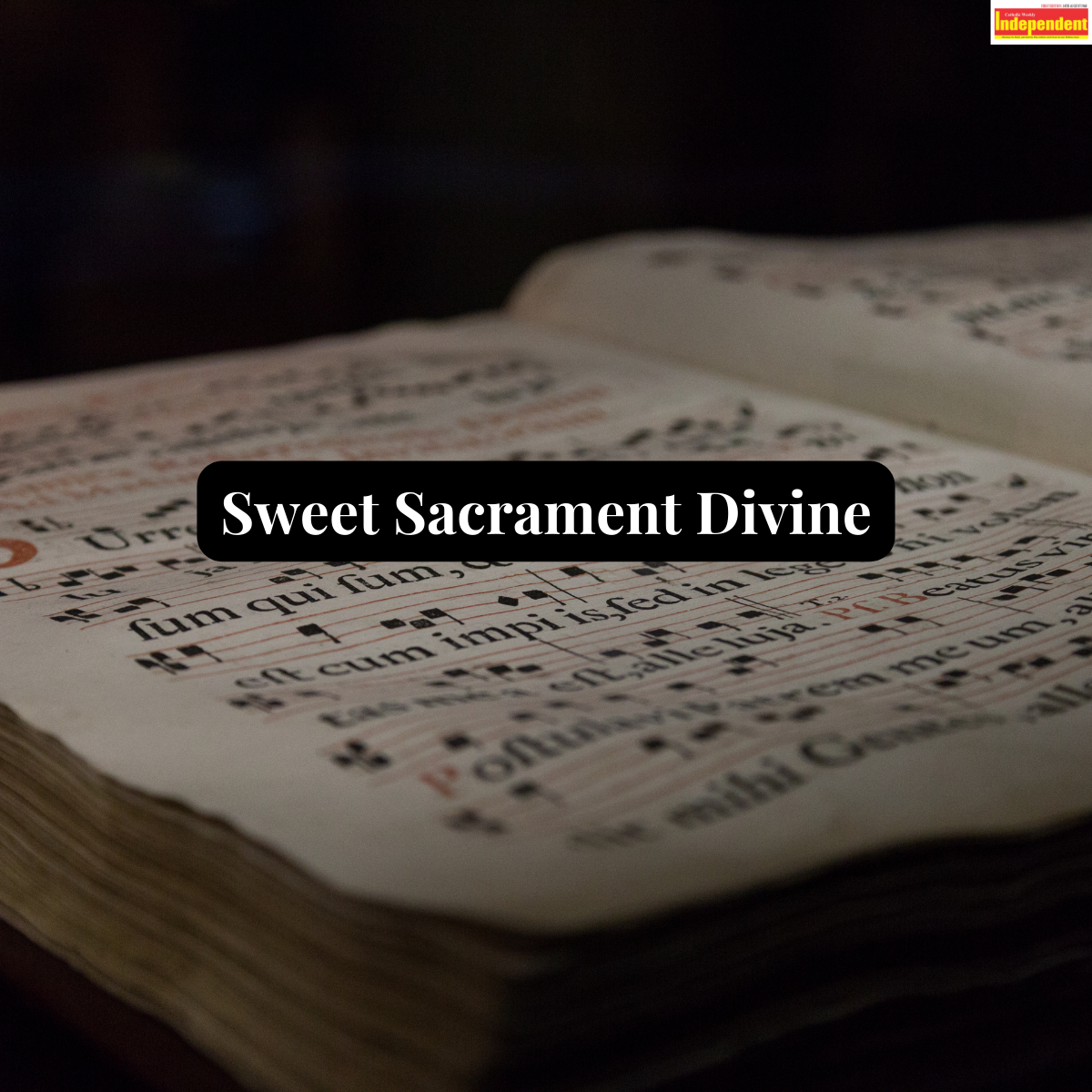
SWEET SACRAMENT DIVINE
Introduction
This is one of the Catholic hymns that from its first to last verse is a long chain of prayer. The phrase, sweet sacrament divine is both an invocation and an affirmation.
The hymn's lyrics are a tribute to the enduring power of faith and the importance of the Eucharist in nourishing and sustaining believers.
Composer and Year
The composer of the hymn "Sweet Sacrament Divine" is Francis Stanfield, an English Catholic priest, who also wrote the lyrics for the hymn.
The tune for the hymn is called "Divine Mysteries," and the meter is 66 66 88 66. The hymn was published in two parts in 1858 and 1860 for Holy Communion.
Circumstances surrounding the composition
The hymn "Sweet Sacrament Divine" was written by Francis Stanfield, an English Catholic priest, in the mid-19th century.
At that time, the Catholic Church in England was experiencing a period of renewal and growth, following the Catholic Emancipation Act of 1829, which granted religious freedom to Catholics.
Stanfield wrote the hymn specifically for the Benedictine Monastery of St. Mary's, Pierrepont, near London, where he was the Chaplain. The Monastery was a center of devotion to the Blessed Sacrament, and Stanfield's hymn reflects this focus.
Scriptural and Theological Sources and Basis
The hymn draws inspiration from scriptural passages like John 6:53-56, where Jesus declares, "Unless you eat the flesh of the Son of Man and drink his blood, you do not have life within you."
This passage, along with 1Corinthians 11:23-26, which recounts the institution of the Eucharist at the Last Supper, forms the scriptural basis for the hymn's lyrics.
Theologically, the hymn reflects the Catholic doctrine of transubstantiation, which holds that the bread and wine used in the Eucharist are transformed into the actual body and blood of Christ. This doctrine is affirmed in the Catechism of the Catholic Church (CCC 1374-1375).
Liturgical Depth and Usage
"Sweet Sacrament Divine" is commonly sung during Mass, Benediction, and Eucharistic processions. Its lyrics reflect the Church's teaching on the Eucharist as a source of spiritual nourishment, forgiveness, and unity with Christ.
The hymn's use in liturgical settings underscores its importance as a tool for fostering devotion and reverence for the Eucharist. As the Catechism states, "The Eucharist is the source and summit of the Christian life" (CCC 1324).
Wealth of its Lyrics
The hymn's lyrics are rich in imagery and symbolism, emphasizing the Eucharist as "Sweet Sacrament Divine," a "Hidden God, whose presence we adore." The lyrics express the Eucharist's nourishing and consoling effects, declaring it "Sweet light so shine on us we pray."
The hymn also affirms Christ's presence in the Eucharist, proclaiming, "Sweet sacrament of rest." These lyrics demonstrate the hymn's ability to capture the essence of Eucharistic devotion, inspiring reverence, gratitude, and awe in those who sing it.
Conclusion
"Sweet Sacrament Divine" is a timeless hymn that has enriched Eucharistic devotion for over a century. Its beautiful lyrics and soothing melody continue to inspire reverence, gratitude, and awe for the sacred mystery of the Holy Eucharist.
As we reflect on the hymn's history, meaning, and significance, we are reminded of the enduring power of faith and the importance of the Eucharist in nourishing and sustaining believers.



Leave a Comment